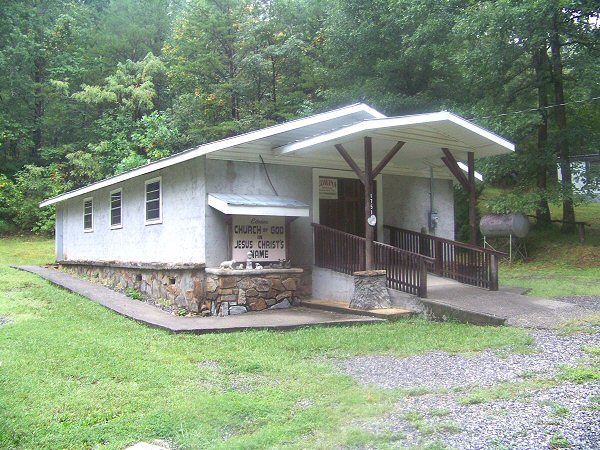Stranger Than Fiction: “And They Shall Take Up Serpents”
On a Sunday evening, men and women gather in the home of a fellow Christian to praise God and give thanks for the blessings in their lives. When all the members have arrived, they quietly retire to a room in the basement of the home for church services. They must be careful and not attract too much attention. To do so would risk imprisonment and persecution and the risk of being ostracized by neighbors who scorn these faithful few.
This service is not taking place in a foreign country. It is not taking place in a Muslim nation where Christians are persecuted. This service, which must rely on secrecy to avoid persecution, is in the United States.
During the early 20th century a new religious order emerged from the rural communities and coalfields of Appalachia. It was a Christian sect that took a literal translation of several verses in the Bible which resulted in the birth of one of the most unusual and controversial denominations of the Christian faith.
Practitioners became the subject of religious persecution from the public and the government. Today, they remain the only order of the Christian faith to have their practices banned and deemed unlawful in many states. As a result, many of the denomination must practice their beliefs in secrecy hidden from the eye of the law and public officials that would incarcerate the members.
It seems incredible that, in the land of the free, a religious sect would be persecuted by the government. But, the punishment for the rituals practiced by the members of the Church of Jesus’ Name or the Church of God With Signs Following, has been severe.
What distinguishes the Church of Jesus’ Name is the hazardous practice that has taken the lives of some followers of the faith. The church practices snake handling and the consumption of poison. During services, some members have consumed small amounts of strychnine poison or handled deadly snakes such as rattlesnakes and copperheads. The lethal bite of these venomous snakes has proved fatal for several members of the faith resulting in several states banning the religious practice.
These practices play only a small part of the service of churches that practice snake handling. Practitioners believe serpent handling dates to antiquity and quote the Book of Mark and the Book of Luke to support the practice:
“And these signs shall follow them that believe: In my name shall they cast out devils; they shall speak with new tongues. They shall take up serpents; and if they drink any deadly thing, it shall not hurt them; they shall lay hands on the sick, and they shall recover.” (Mark 16:17-18)
“Behold, I give unto you power to tread on serpents and scorpions, and over all the power of the enemy: and nothing shall by any means hurt you.” (Luke 10:19)
It was the literal translation of these verses that formed the basis of the denomination and the practice of handling snakes. The church was founded by George Went Hensley (1880–1955), a preacher who left the Church of God in Cleveland, Tennessee.
Some of the leaders in these churches have been bitten numerous times, as indicated by their distorted extremities. The founder of modern snake handling in the Appalachian Mountains, George Went Hensley, died for his beliefs after being bitten by a viper in 1955. In 1998, snake-handling evangelist John Wayne “Punkin” Brown died after being bitten by a timber rattler at the Rock House Holiness Church in rural northeastern Alabama. His wife had died three years earlier after a snake bit her while in Kentucky.
A Tennessee woman died in 1995 due to a rattlesnake bite received during a service at the Tabernacle church. Another follower died in 2006 at a church in Kentucky.
Because of the dangers posed to the practitioners of the faith, the states of Alabama, Kentucky and Tennessee have passed laws against the use of venomous snakes and/or other reptiles in a place that endangers the lives of others, or without a permit. Snake handling was made a felony punishable by death under Georgia law in 1941, following the death of a seven-year-old girl from a rattlesnake bite in a snake handling incident. The law was repealed in 1968.
The state of Kentucky passed a law specifically banning snake handling during religious services; in Kentucky snake handling is a misdemeanor and punishable by a $50 to $250 fine. Only in the state of West Virginia is the practice legal.
Michael Williams is the author of a book entitled “Stranger than Fiction: The Lincoln Curse.” The book is a collection of 50 strange and unusual but true stories. The stories will leave the reader convinced that perhaps Mark Twain was right when he said “truth is stranger than fiction.”
He has written for more than 30 newspapers and magazines including the Civil War Times Illustrated, The Civil War Courier, the Associated Press and the Knoxville Journal.
The book is 187 pages in a softbound edition with numerous photos. The book can be purchased from amazon.com for $19.95 plus shipping and handling or you can save shipping cost and save $2 on the purchase price by ordering a signed copy directly from the author. Send $17.95 to P.O. Box 6421 Sevierville, TN. 37864.
The book is available in Kindle on Amazon.com for $3.99. For more information visit the website www.strangerthanfictionnews.com










